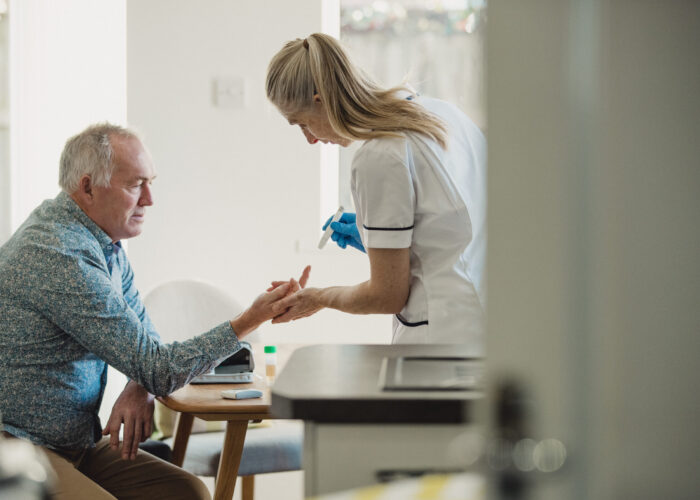 Imperial College Health Partners (ICHP) are proud to be part of a bid-winning team for a cutting-edge study to test and implement a new way of diagnosing clinically important prostate cancer using artificial intelligence (AI).
Imperial College Health Partners (ICHP) are proud to be part of a bid-winning team for a cutting-edge study to test and implement a new way of diagnosing clinically important prostate cancer using artificial intelligence (AI).
The study is one of a number of winners of the AI in Health and Care Award, announced by Secretary of State for Health and Social Care Matt Hancock and led by the National Institute for Health Research (NIHR), which will share approximately £50m funding.
Following this win, ICHP will be providing a full economic evaluation for the Ibex Artificial Intelligence Histology system, which diagnoses clinically important prostate cancer on prostate biopsy tissue.
The system will be tested using information from 600 men across six NHS hospitals, and compared with assessment from trained pathologists to determine its accuracy.
Our evaluation will include both a short-term economic model for the scope of the trial and a long term model to evaluate the costs associated with introducing the Ibex-AI system into NHS hospitals, and potential cost savings as well as cost-effectiveness.
The AI in Health and Care Award supports a range of technologies at different stages of development, from concepts to first real-world tests to the scaling of AI products to a number of NHS sites to generate further evidence for potential adoption in the NHS. Each product will undergo robust testing and independent evaluation to ensure they are effective, accurate, safe and value for money.
The award forms part of the NHS AI Lab and is managed by the Accelerated Access Collaborative in partnership with NHSX and the National Institute for Health Research. It supports the vision set out in the NHS’s Long Term Plan to use new technologies and treatments to improve patient care and save more lives.
Other winning projects include machine learning algorithms to analyse breast cancer screening scans, AI tools to assess emergency stroke patients, AI powered apps that turn a smartphone into a clinical grade medical device and a wearable patch to detect irregular heartbeats.
Matt Hancock said: “AI has huge potential for transforming healthcare and freeing up medical professionals’ time – these awards are just the start of an exciting pipeline of new technology that will identify new ways to diagnose, screen and treat illnesses ranging from dementia and sepsis to antibiotic resistant infections and problems in pregnancy.”



